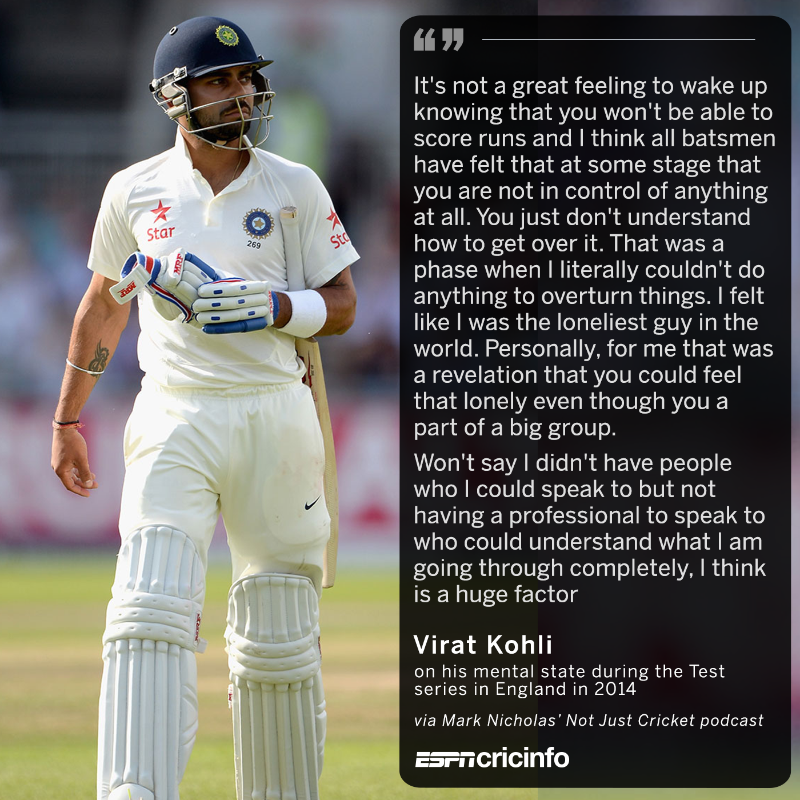Virat Kohli’s revelation about battling depression will hopefully open a lot of doors for men to start having conversations about mental health. In a society that stigmatizes mental health, whenever a celebrity has spoken about their struggles with depression and anxiety, it, at least, normalizes mental health issues. But still, we are miles away from making it as normal as physical ailments.
Depression is a debilitating illness which is extremely underreported. At times, it’s manifested and processed differently in genders. Men usually report symptoms of anger, irritation and isolation, which may not be typical symptoms and may not be recognized as depression. Dial in the deeply ingrained notions of toxic masculinity, and you’ll have even less men reporting feeling low.

In the culture of sports, sportsmen often see losses as personal failures and inadequacies, and a lot of them see only winning as a goal. This puts the pressure of a lot of expectations on them to succeed in every match they play. And if you are leading a team, one can very well imagine the stress the person has to go through. It’s bound to get ‘lonely’ at the top where to be seen as vulnerable, is to believe that you are weak which in turn, results in even fewer men seeking help.
One of the most overlooked issues is the mental health of sportsmen or athletes. Due to the competitive nature of sports, many of them can carry the risk of depression. When they encounter their own fears and emotional struggles, most men tend to disguise the feelings of vulnerability, confusion, shame. And with that comes isolation and loneliness which could lead to depression.
Most men turn towards their male friends for factual advice which is more pragmatic. Very rarely do they speak about their deep emotional troubles or even sometimes don’t have the language to express their vulnerabilities. One of the best solutions is to talk about it “face to face” and ask for support from a mental health professional. The importance of awareness cannot be stressed more.
The full article on this can be found here.
If you are concerned with how you or someone you know are feeling and are finding it difficult to cope, please contact Oxfordshire Mind’s information line to speak to a wellbeing worker on 01865 247788 (Monday to Thursday, 9:30am to 4:30pm).
Alternatively, if you do not feel like talking on the phone, you can text into Oxfordshire Mind with your questions around mental health and wellbeing using the following number 07451 277973 (Monday to Thursday, 9am to 4pm).


